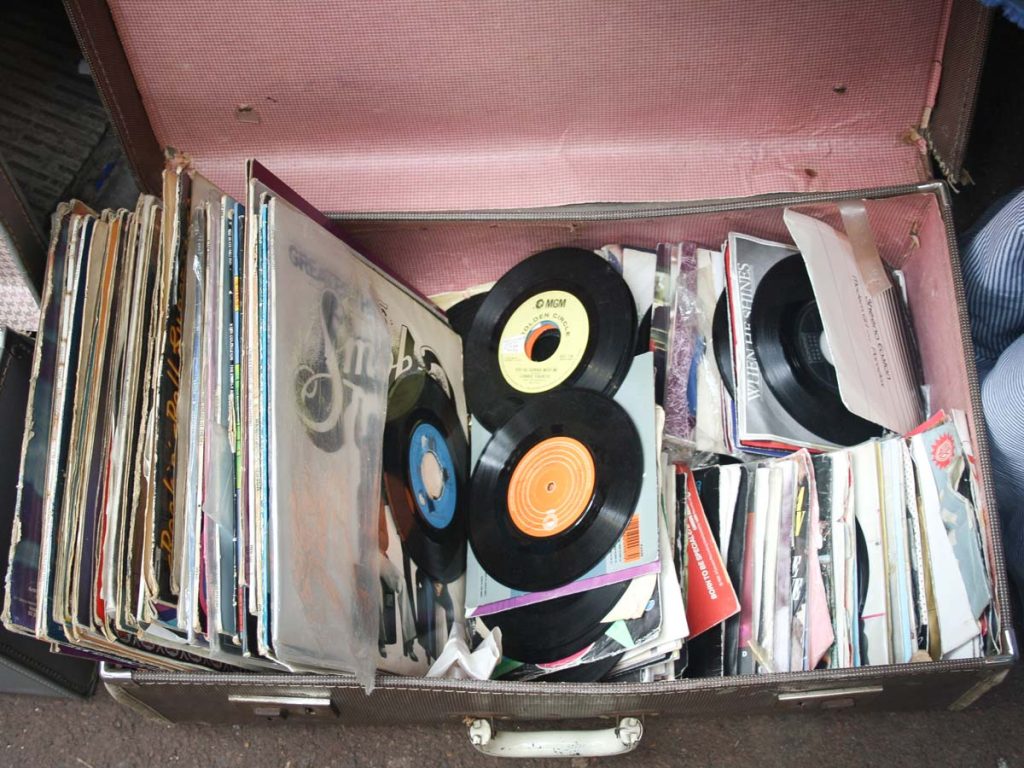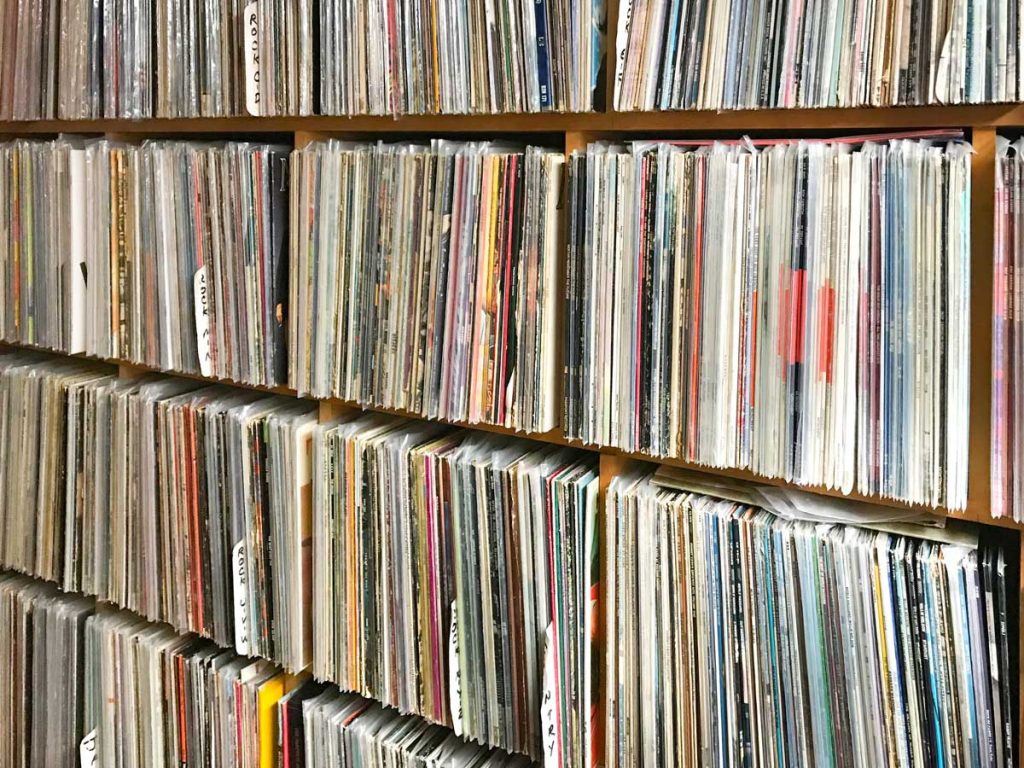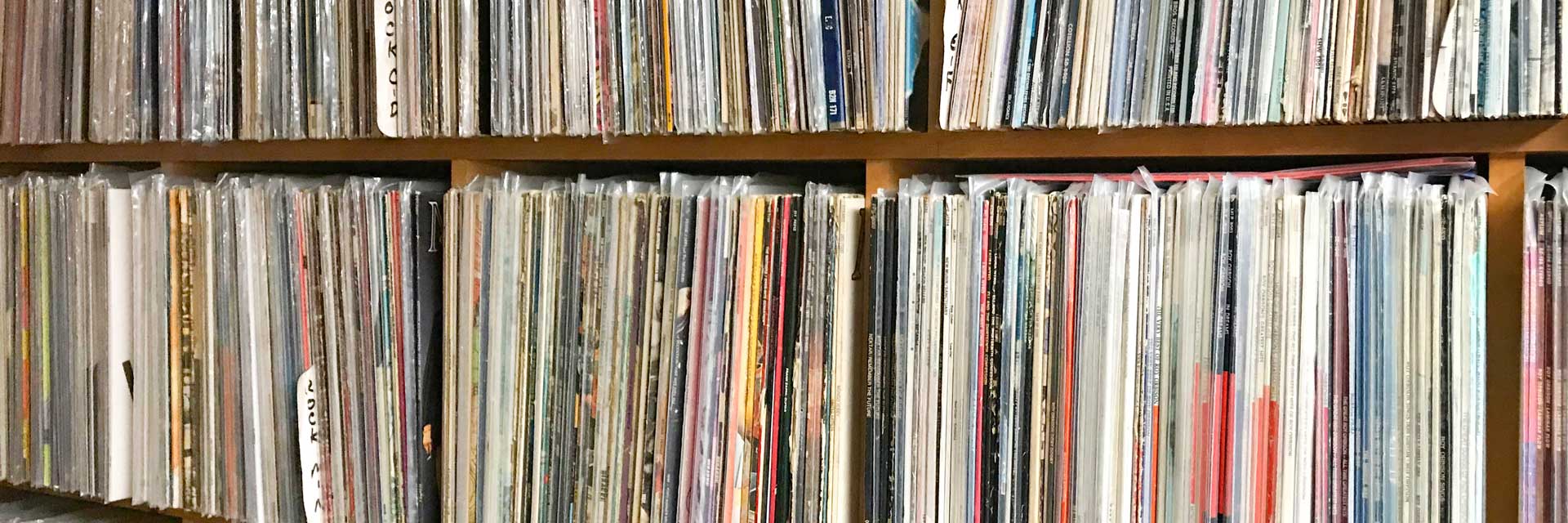My life took a swerve in the summer of 1974. Did I have an affair with an older woman whose husband was away in a war? Did I learn that love means never having to say you’re sorry? Was I picked by the Red Sox in the first round of the amateur draft? None of the above. I spent the summer earning money for college by working in a record warehouse, filling orders for record stores in Southeastern Massachusetts and Rhode Island.

FIDELITY cooperation with Copper magazine.
Read this article also in Copper.
This sounds like a good swerve, doesn’t it? A music-obsessed teenager surrounded by skyhigh shelves of long-playing records, all current. What else could I ask for? — Aside from the paychecks, a lot!
There was no air-conditioning in this cavernous space in the middle of suburbia. No place to eat lunch. The only music they played while we worked was a tape loop of 1950s pop. I heard the Coasters’ “Yakety Yak” three times a day. There was no employee discount because there was no need for one; most of the employees were Portuguese immigrants with an imperfect command of their new language. They weren’t in the market for Pink Floyd records. The tiny population of teenage boys on the job who were in the market for Pink Floyd records was, to use the technical corporate term, too small to f*ck with.
But the main drawback to this job was the astonishing weight of the LPs en masse.
After pulling orders for various music shops, I had a stack of records on my two-wheel hand truck that weighed 16 tons, by my estimate. The stack grew so high that I had to cinch it down with a seat belt. I pushed and pulled this captive mass of vinyl through the warehouse to the loading dock, where I unloaded the records into bins. Walking the empty two-wheeler back to my starting position and accepting the next list of orders gave me a few moments of rest. And then I resumed pulling orders.
My sweat-soaked days in the warehouse (I particularly loathed double-record sets such as Yes’ Tales of Topographic Oceans and Chicago VI and VII and I thank the gods of audio engineering that Chicago’s four-record live album was before my time) were reinforced the following year in Boston. I worked for a moving company that specialized in transporting students’ stuff in and out of their dorms and apartments. My specialty within this specialty was moving their record collections. I was assigned this duty for my own safety, to keep me away from the furniture. You get trapped in a stairwell once by a runaway couch and nobody forgets it.
Every day I schlepped plastic and wooden crates packed with LPs in and out of elevators or up and down stairs. (The two albums I saw the most: for the girls, Carole King’s Tapestry; for the boys, Aerosmith’s Toys in the Attic.) I swore an oath that I would never own a roomful of these things.

How to Get Along Without Vinyl
Cassette tapes seemed like the perfect alternative to LPs, being light and compact. My first collection of cassettes sat snugly on the shelves of a spice rack I had made in my junior high shop class. LPs demand that you create a shrine in your house and then sit your ass down and stay there. Cassettes were the go-anywhere, power-to-the-people format. The first time I fired up Born to Run on a boom box outdoors, I cried out, “Democracy is in the streets!”
Ray Chelstowski wrote about his life with cassettes in Copper No. 123 (“Tale of the Tapes”). I enjoyed cassettes until I could no longer ignore their drawbacks. My tapes got jammed in the cassette deck in the car. Tape rolled off reels and had to be rewound with the high-tech tool of choice, the point of a Bic pen. The cover art was too small and it rarely appeared on the back of the cassette.
But most importantly, when I wanted to find a song, or when I wanted to skip a song that wasn’t a favorite, I had to fast forward again and again and again, testing the air each time, then rewind because of course I had fast-forwarded my way into the next song. At one point I owned a cassette deck with a counter, which was useful, but I had to write down where each song started and find a place for this list inside the cassette case, which was a chore. I wanted to rawk, not take notes.
In the 1990s, a friend bought himself a new CD deck and gave me his old one. My life swerved again with the impact of a Corinthian column of vinyl busting through the bottom of the bin I was trying to lift.
About Steven Bryan Bieler
Steven Bryan Bieler is a novelist living in Portland, Oregon, with his wife, his dogs, and his CD collection. He blogs about music at www.rundmsteve.com
Special thanks to Copper magazine

